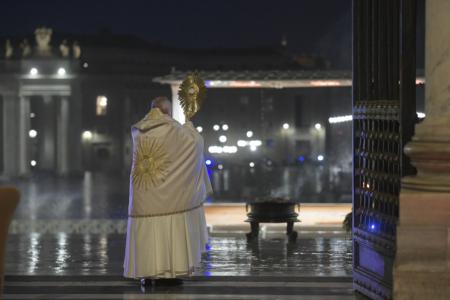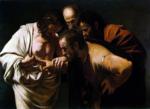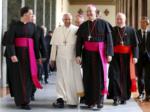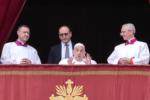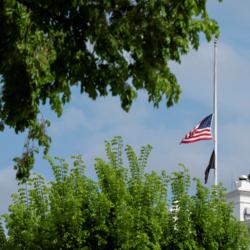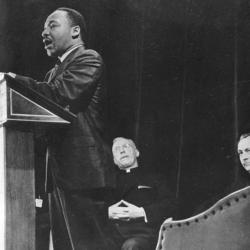Masters week foreknowledge
Golf is not sacred. No one should scatter ashes on St. Andrews or Pebble Beach -- or anywhere for that matter, as the church teaches. A journey to the Masters is not a pilgrimage. Tournaments should be held only later on a Sunday, after important things. And yet, for those who pay attention, it does teach spiritual lessons.
What made me love golf at first? My father, and his set of clubs, on a pushcart with wire wheels, which he won for selling a lot of life insurance. For me, golf was something men did. These golf clubs, they were men's tools. I would look at golf balls, studying the dimples, marveling at the skill put into making them. Men obviously cared about these things. I did not have the words for it, but I was drawn to a certain kind of civilization.
So far, it was solely fascination and a desire to imitate. I was not positively captured by the game until, on the eighth hole of an early round -- I can still picture it -- I put a ball into the air. When I saw its amazing arc, it thrilled me. I wanted to go back and do that again. But why? Why do boys like to shoot guns, arrows, or rockets? Because they love action at a distance and effects that magically transcend the cause.
When I grew older, I loved the beauty of golf courses. Yes, I loved wilderness, as Americans do. I would hike in the mountains for weeks, carrying my gear on the Appalachian Trail. But there is another, older, more classical love of nature, which is love of cultivated nature, where human interests harmonize with their natural background. Cultivated nature is potentially even more beautiful because it adds human art to the Creator's art. This, too, is a kind of civilization that attracted me.
Then I loved the refutation in golf of "might is right." After you slam the ball 300 yards, if you can, you must delicately stroke and cajole it into a tiny hole. "Hold the putter as you would an injured bird," was an early piece of advice. Today, you might be helped in the endeavor by a precise topological map of a green, which would not be too much information. Yet even slamming the ball refutes "might makes right." Just watch the foursome from the football team on the first tee. "Effortless power, not powerless effort," another wise instructor admonished me. Beauty, form, and grace triumph over muscle mass. Go online and look at Ben Hogan's swing -- or Fred Astaire's in "Carefree."
Humility, i.e., true self-knowledge, is the bedrock virtue of golf, just as it is in spiritual life. You cannot make progress until you stop cheating, that is, deceiving yourself. You must write down all the strokes and make all the putts. Someone who throws his club and cusses after a bad shot, as if "I certainly don't play golf like that," still has not learned humility.
Then there is the humility of knowing how weak you are and how low you stand. Someone's cough disrupts your great skill? The fact that a handful of people are watching you? Your club champion who shoots a 67 with apparently unsurpassable skill would hardly be competitive in the pre-tournament for the entry tournament for the qualifying tournament of a third-tier pro event. The game is difficult, like playing a violin. The levels and levels of virtuosity soar upwards out of sight. And yet people expect to play it well without practicing. All of this is a crucible for contradiction of self, humiliation, and, therefore, humility.
Did I mention how attempting to guide yourself is almost always a mistake? You are not a good judge of your own faults. (Think: you need a confessor or spiritual director.) Or how sometimes a change that looks insignificant proves counterintuitively to be the key to a complete renewal of your swing? (Think: an effective retreat resolution.) Or how sometimes the more you work, the worse you seem to get, and for long periods, it looks like you are stalling and making no progress, and yet honest application does find its reward eventually? (Think: interior life generally, with its dark nights of the soul and distinction between progress and consolations.)
Then there is politeness, which is simply a refinement of charity. Shaking someone's hand firmly on the first tee, looking him in the eye, introducing yourself, and learning his name. Taking care always to be gracious, pleasant, and obliging in how you act towards others, especially around the green. If you are fortunate to play at a club with a dress code (or even if you are not), dressing smartly to show that you care about how you look to others, and thereby setting a standard for how someone should dress for church ("at least as good as you dress at the golf course").
Other spiritual dimensions of golf might include: the necessity of study, showing long suffering, practicing patience, bearing up cheerfully in the face of bad breaks, disciplining yourself with realism ("take your medicine," my instructor would tell me, after hitting the ball into the rough) -- and not least prayer.
I've known young Catholic men who would say all four sets of mysteries during a tournament round. You and I -- it's easy -- can say one during our weekend outings.
Michael Pakaluk, an Aristotle scholar and Ordinarius of the Pontifical Academy of St. Thomas Aquinas, is a professor in the Busch School of Business at the Catholic University of America. He lives in Hyattsville, MD, with his wife Catherine, also a professor at the Busch School, and their eight children. His latest book is “Be Good Bankers: The Economic Interpretation of Matthew’s Gospel.”
